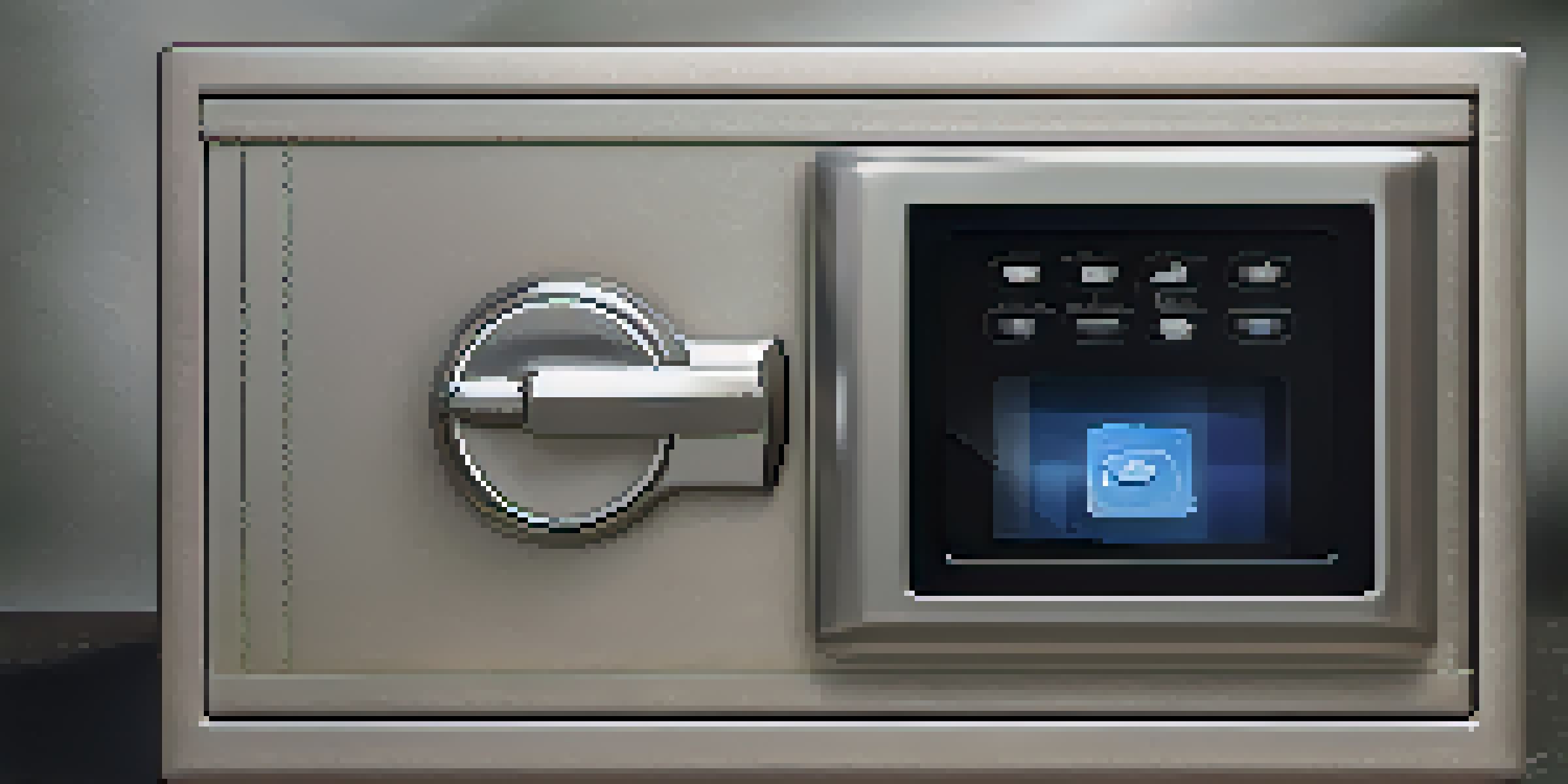Best Practices for Securing Your Cryptocurrency Exchange Account

Use Strong, Unique Passwords for Your Accounts
Creating strong and unique passwords is your first line of defense against unauthorized access. A robust password combines upper and lower case letters, numbers, and special characters, making it hard to guess. Additionally, avoid using the same password across multiple platforms; if one gets compromised, others are at risk too.
The best way to predict the future is to create it.
Consider using a password manager to generate and store complex passwords securely. This tool not only saves you from forgetting them but also encourages you to create passwords that are difficult to crack. Ultimately, a unique password for your cryptocurrency exchange account can significantly reduce the likelihood of a security breach.
Lastly, make it a habit to change your passwords regularly. While it may seem tedious, refreshing your passwords every few months can keep your account safer, especially in an environment where breaches occur frequently.
Enable Two-Factor Authentication (2FA)
Two-factor authentication (2FA) adds an extra layer of security to your account. By requiring not just a password but also a second form of verification—like a code sent to your phone—you make it much harder for attackers to gain access. This means even if someone manages to steal your password, they still can't get in without your second factor.

There are various 2FA methods, such as SMS codes or authentication apps like Google Authenticator. While SMS is more common, using an authentication app is generally considered more secure, as it doesn’t rely on your phone number, which could be intercepted. Implementing 2FA is a straightforward step that significantly enhances your account's security.
Use Strong, Unique Passwords
Creating robust and unique passwords is crucial to prevent unauthorized access to your accounts.
Remember, always ensure that your 2FA method is secure and that your recovery options are up to date. If you ever lose access to your phone or authentication app, having backup codes or recovery methods in place is crucial.
Beware of Phishing Attacks
Phishing attacks are deceptive attempts to steal your sensitive information through fake emails or websites. Cybercriminals often impersonate legitimate companies, making it look like they’re asking for your credentials. Be cautious about any unsolicited requests for information, especially if they come with a sense of urgency.
Security is not a product, but a process.
Always check the sender’s email address and look for signs of phishing, like poor grammar or generic greetings. When in doubt, visit the official website directly instead of clicking on links in emails. This simple precaution can save you from falling into a trap.
Additionally, educate yourself about common phishing tactics. Knowing what to look for can help you recognize potential threats and keep your cryptocurrency exchange account secure from malicious actors.
Keep Your Software Up to Date
Regularly updating your software—including your operating system, browser, and any apps you use for trading—helps protect your devices from vulnerabilities. Developers frequently release patches that fix security holes that hackers can exploit. Neglecting these updates can leave you at risk.
Set your software to update automatically whenever possible. This way, you won't have to remember to check manually, and you'll ensure you're always using the latest, most secure version. Being proactive about updates is one of the easiest ways to fortify your defenses.
Enable Two-Factor Authentication
Implementing two-factor authentication significantly enhances your account security by requiring an additional verification step.
Also, consider using antivirus software to add another layer of security. This software can detect potential threats and alert you to suspicious activity, providing peace of mind while you engage in cryptocurrency trading.
Use a Secure Internet Connection
When accessing your cryptocurrency exchange account, always use a secure internet connection. Public Wi-Fi networks can be convenient, but they are often less secure and more susceptible to hacking attempts. If you must use public Wi-Fi, consider using a Virtual Private Network (VPN) to encrypt your data.
A VPN creates a secure tunnel for your internet traffic, making it difficult for cybercriminals to intercept your information. While it may seem like an extra step, the protection a VPN offers can be invaluable when you're managing significant assets.
Moreover, avoid logging into your accounts on shared or public computers. These devices may have malware installed that could compromise your login details. Sticking to your personal devices ensures that you maintain control over your security.
Monitor Your Account Activity Regularly
Keeping an eye on your account activity is essential for spotting any unauthorized transactions or suspicious behavior. Most exchanges provide a transaction history, allowing you to track all incoming and outgoing funds. Regularly reviewing this information helps you catch potential issues early.
Set up alerts for any transactions made on your account. This way, you’ll receive notifications for any activity, making it easier to respond quickly if something seems off. Quick action can significantly reduce the impact of any unauthorized access.
Store Cryptocurrency Safely
Using cold wallets for long-term cryptocurrency storage helps protect your assets from online attacks.
Additionally, familiarize yourself with the signs of a hacked account. If you notice unusual transactions or if you’re locked out of your account, report it to the exchange immediately. The sooner you act, the better your chances of mitigating any potential losses.
Store Your Cryptocurrency in Cold Wallets
For long-term storage of your cryptocurrency, consider using cold wallets rather than keeping everything on an exchange. Cold wallets, like hardware wallets, store your assets offline, making them less vulnerable to online attacks. This is especially important for significant amounts of cryptocurrency that you do not intend to trade frequently.
While exchanges offer convenience for trading, they can also be prime targets for hackers. By transferring your assets to a cold wallet, you reduce the risk of losing them in a breach. It's akin to keeping your cash in a safe instead of leaving it in an unlocked drawer.

Always ensure that your cold wallet is from a reputable manufacturer and follow best practices for its setup. A little diligence goes a long way in safeguarding your digital assets from theft.